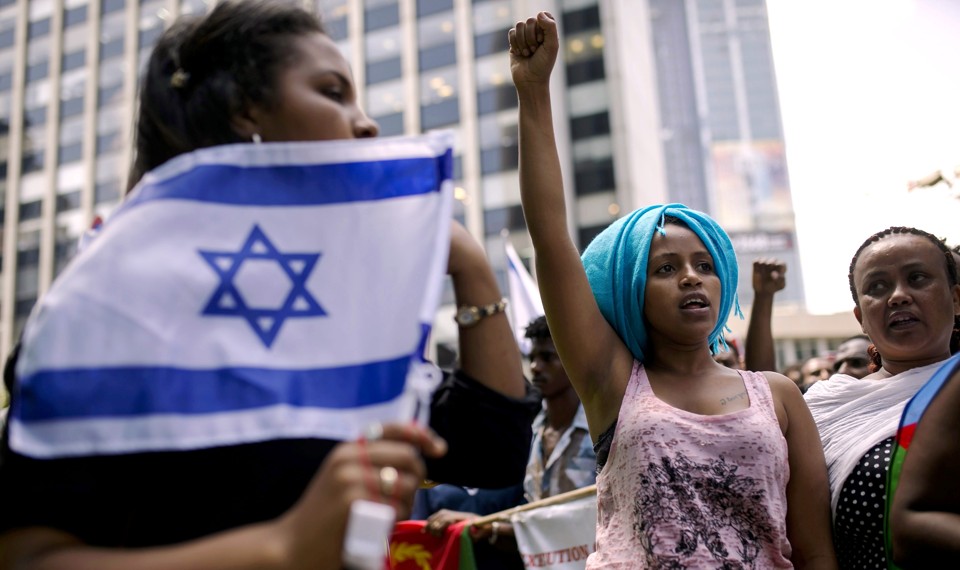The Israeli government has been promising mass deportations of African migrants for years. But at the beginning of January, it set a timeline. “Last year, we deported approximately 4,000 and the major effort is to deport most of those who remain, who have infiltrated and are present in Israel illegally,” said Prime Minister Benjamin Netanyahu. The government would offer these migrants a choice, he added: a plane ticket out, or jail. The Israeli government reportedly struck a deal with Rwanda to accept the returning migrants, although the African country has denied this.
* * *
The Eritrean Women’s Community Center in South Tel Aviv is nearly impossible to find, tucked away in a back alley up several flights of stairs. But the center is a pillar of this migrant-dominated neighborhood, with a waiting list for its refugee services in the many hundreds. Many Eritreans and Sudanese people ended up here because it is central to downtown Tel Aviv, close to the central bus station, and cheap.
At least twice a week, volunteers come by to help asylum-seekers fill out their Refugee Status Determination forms, a step that’s important for their cases, even though the vast majority of applicants never hear back and their attempts to be recognized may be ignored under the new deportation policy. On a recent Wednesday night, toddlers played with a Mickey Mouse toy as their parents waited in line to be seen by one of the 20-something-year-old volunteers, mostly American women in sweatpants. Each migrant carried his or her life story in paperwork, often tucked carefully in plastic binders or page protectors. Together with the volunteers, they improvised their way through pages riddled with errors made by the officials who processed their entry applications, from incorrect birthdates to misspelled names. readmore

Leave a Reply
You must be logged in to post a comment.